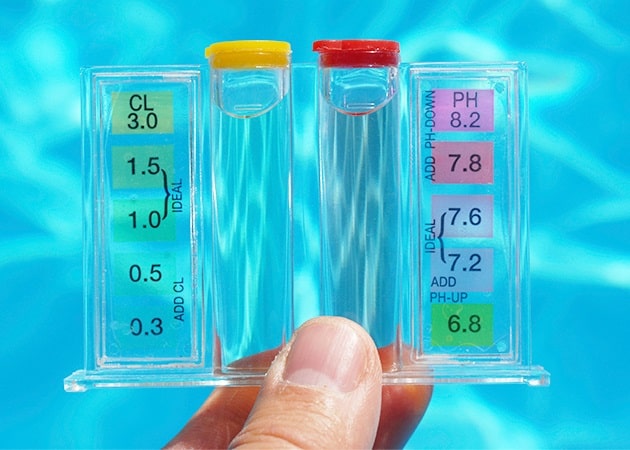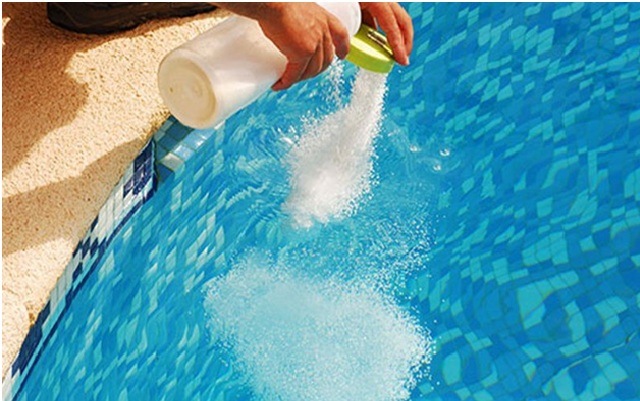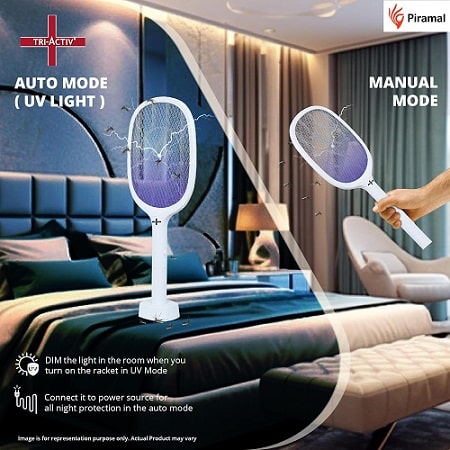If you have a pool on your property, one thing you want to be critical about is maintenance. And to achieve this, you will need to make use of a chemical solution in your cleaning.
But just how safe are these chemical solutions for your skin and health?
This is what this article will be discussing, how you can stay safe while using chemicals in your swimming pool. Without any further delays, let’s get right into the details.
Why Use Pool Chemicals?
They are necessary to help deal with the buildup of bacterial elements in the water. Leaving all that water exposed to the atmosphere and the dirt from splashing in it could contaminate the water.
And without the use of any form of treatment, you could be exposing yourself to infection. Not only do you stand the risk of skin irritation, but you could also suffer from sore eyes and poisoning if you swallow the pool water.
But still, it’s part of the standard for pool owners to have a swimming pool chemicals test kit available for keeping the area clean and safe for the users. And if you are planning to dig one up or install above ground pools, you want to plan about maintenance.
The Best Options for Pool Chemicals
Many treatment options could be employed to sterilize water and make it safe for bathing. But with swimming pools, you want to ensure you use a suitable chemical combination.
Getting it wrong could pose a severe health risk, so you want to start by understanding the entirely safe chemicals to use in pond water. Below are some of the safest options many pool owners use in their water treatment.
Know more: 8 Reasons Why Your Home Needs a Redecoration
-
Chlorine Treatment
One of the common chemicals used in water treatment is chlorine. It has properties that make it effective in killing germs and bacteria that build up in water systems.
When mixed properly, it is likely to not cause any tingling on the skin or redness of the eye. You can find safe preparation procedures that make it easy to use chlorination effectively.
It may be best to buy tablet options that make it easy to measure how much you use.
While this chemical can help with improving pond water quality, you still want to drain the water occasionally and refill with a fresh supply. You can find more here about using chlorine in water treatment.
-
Bromine
You could also try bromine treatment for hot water systems. This could include your hot tub if you have an installation in regions with high temperatures. Just like chlorine, it also helps with eliminating bacteria and germs around the swimming space.
Bromine can remain stable at temperatures above 75°F, making it suitable for summertime use when the weather is hot. Whether it comes to the better option between chlorine and bromine, you can have both in your store.
Use chlorine for unheated pool treatment and bromine for spas and hot tubs or when the temperatures exceed the normal.
-
Shock Treatment
Part of your regular pool treatment routine will include raising chlorine levels when you flood it with a fresh supply. This is done to ensure the water remains safe to bathe in.
In most cases, you can find products with a mix of chlorine that allows you to do this effectively without monitoring temperature or pH levels.
Still, you want to be sure about the temperature and pH ratings before increasing the chemical supply in your installation.
-
pH Balancers

Compounds like calcium are employed to balance the pH levels and make the water less hard. Minus granules, on the other hand, aim to lower the alkalinity levels helping to keep the skin safe. You can also expect the water to last longer if you make use of balancers.
-
Stain Treatment
There are equally pool chemicals that you can use in getting rid of stains from the surface of your installation. This will come in handy when you have to drain the water and clean it dry before refilling with a fresh supply.
The buildup of stains is usually due to minerals and metals in the water that react with the surface when left unchanged for a long time. While there are many alternatives for a pool wash, using bleach could help with tough stains. But you want to be careful about using chemicals that are harsh on the skin.
Cobalt, iron, copper, and manganese are some of the chemicals you want to get rid of in your pool water, and this can be done quickly if you have the proper pool water treatment for stains.
-
Use Pool water filter to keep it clean
The pool water filter pump water from the swimming pool through a barrier it can be sand, cartridge or DE.
This water filter will trap particulates and contaminants and hold them. The water is then cleaned and then pushed back into the swimming pool.
You can contact your pool contractor to install pool water filter or ask him to check if your current water filter id working or not.
Know more: Importance of Regular Gas Pool Heater Repair
Final Note
Using chemicals in your pool can help with minimizing bacteria buildup and ensuring the area is safe to bathe in. You want to use the right mix, ensure that you balance the alkalinity levels, and treat stains regularly.



